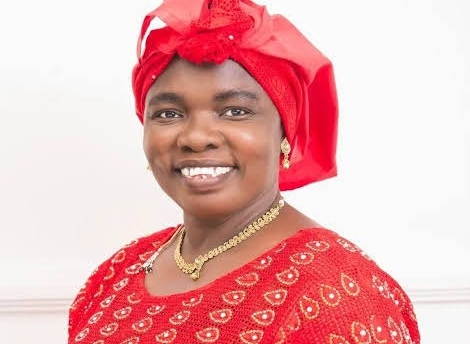In 1978, an 8-year-old American girl named Melissa Rich noticed that the many kinds of trading cards she collected featured no women. She brought this to the attention of her mother, Lois Rich, who in turn discussed it with her sister, Barbara. The sisters then, all of a sudden, realized how invisible successful women were when they asked Melissa and her friends to each list five women they admired, and everyone came up short.
According to Lois, girls and boys in her daughter’s peer group were unaware of any woman who wasn’t either a First Lady or a television personality from the TV programs they watched. So the women came up with their own list of five hundred accomplished women, wrote five hundred letters to each of those women asking for a small favour. The following year, “Supersisters” became the first trading card set to highlight women’s achievements in sports, politics, academia, science, arts, popular culture, and more.
The initial run, produced with a grant from the New York State Education Department, was distributed to local schools. Teachers seemed thrilled to have examples of contemporary heroines to share with their students, and the ten thousand sets that were initially printed sold out fast, leaving many schools begging for more.
Supersisters were great, and they still are. Forty-five years later, they are now archived in the New York’s Metropolitan Museum of Art. They not only introduced kids to an array of successful women, but they also showed how easy it was to motivate children by putting recognizable faces on the things they have access to, and how effective it was to make political statements about gender using ordinary things.
I remembered this story shortly after the death of the most popular actress above the age of fifty in northern Nigeria’s main movie industry, Kannywood. Saratu Gidado, a 56-year-old woman from Kano popularly called Daso, recently died in her room after she had taken Sahur (the early-morning meal for Muslims) to observe the last Ramadan fast. Her household members eventually had to break her door where she was found lifeless. According to her sister, Daso hadn’t exhibited any serious symptoms of an illness the night before apart from prolonged cough [which could be a symptom of something undiagnosed].
The announcement of her sudden death expectedly shocked not only her colleagues in the industry, but also a lot of northern Nigerians who knew her from the dozens of movies she had appeared in and her activities on social media. During her prime, she was a remarkable actress particularly known for her comical and mischievous roles. She was, in Kannywood, roughly what Patience Ozokwor (Mama G) is in Nollywood: jealous co-wife, wicked stepmom, troubling mother-in-law, greedy housewife, crazy aunt, etc.
Daso became noticeable in the industry in the very early 2000s and rose to become a ringing household name. She cheered our childhood and adolescence when any movie she was to appear in carried the promise of being interesting. I particularly remember her absolutely phenomenal role in DAHAM, a relatively high-budget trilogy directed by Sani Danja, in which she demonstrated the desperation of an avaricious woman in the intricacies of a four-wife wealthy polygamous family.
In a number of interviews, she said she regarded acting as purely a business activity and “not a process of preaching or educating.” She said, for her, the reason she would not take acting as anything other than business was the constant criticism from society that they were “corrupting morality.” She said the morality of society is in the hands of parents and clerics, and people should stop expecting too much from them because what they were doing was purely a fictitious imitation of reality.
Her remarks and stance about the purpose of her acting were not isolated. Lately, nearly all the Kannywood artistes seem to have taken that defensive stance during interviews as a way of swaying the heavy judgements they should be used to by now. Operating in the Muslim North for over thirty years, the industry is still struggling for genuine social acceptance despite remarkable patronage. They have been heatedly subjected to trials and scrutinies based on accusations of immorality especially from influential clerics. In the past, they used to defend themselves with lines such as “When a character dresses indecently in a movie, we are trying to show the consequences such choices,” but they now seem to have shifted from that stance to a more honest one. They now simply say they are doing business, which means they are providing for their consumers what their consumers want. They now frankly admit the reality of popular culture – as progressive as it should be: it’s less about the players than it’s about the game.
Maybe that’s not unconnected to the subtle anxiety Daso’s family and some of her fans demonstrated shortly after her death. Having been active on social media especially on TikTok and Instagram in the last two to three years, Daso seemed to have added digital content creation to her resumé. She was constantly seen on many TikTok videos as a standup comedian where she sometimes danced, made remarks and bodily gestures that were intended to be funny. She was also seen socializing with some of the Hausa-speaking TikTokers whose morals are widely frowned upon by their own community.
So immediately after her death had become viral, desperate blogs and social media parody accounts started rushing to outrun one another in posting her pieces of TikTok content, with the usual intent to ride on the tides in gaining traffic and engagement. In the Muslim North where death is treated as a deeply spiritual occurrence on individuals, there came a rush of pleas from her family and some people on social media to stop posting those videos. The family also said they had deleted her social media accounts.
But ironically, what the plea about deleting the late actress’s videos say were implicit negative judgements of the deceased whom they thought they were trying to honour. It raised some questions: did they try to advise her to stop posting those videos when she was alive (being the closest people to her)? If they did and she didn’t stop, why do they think they could now police the public from using the content the actress had never requested not to be shared after her death? And if they never advised her to stop, why didn’t they? Why now? And, most importantly, what’s actually wrong with the videos?
The ready answers to these questions lie more in Hausa people’s cultural perceptions of decency especially when intersected with spirituality. Her family felt the pressure to erase her social media accounts as their way of honoring her in death. They felt that a lot of her TikTok videos in circulation were not the most flattering memories of the 56-year-old deceased.
But let me provide a quick context. Among her peer group in Kannywood, Daso was the only one active on TikTok. But aside personal interest, it was also facilitated by her level of education and exposure, having earned a diploma from Kaduna Polytechnic and a certificate in London. She was fairly educated and so could operate social media by herself.
Now, apart from being a popular actress in northern Nigeria, and especially in what’s categorized as the ‘Muslim North’ for the purpose of specificity, who was Daso? Was she a role model? Let’s see.
Peter Obi, a forefront contender in the 2023 presidential election, posted condolences to her family and fans on his social media pages, describing her contributions to Kannywood as ones that would leave an “indelible mark.” It was quickly followed by another from President Bola Ahmed Tinubu who also said the actress had left a “vacuum” in the industry.
For a deceased woman to earn those remarks from very important public figures of a country including the President, suggests she was deserving of the title of a female role model. And this brings us back to the story of the American “Supersisters” with which I deliberately opened this essay. Would the northern Nigerian Muslims who mourned her genuinely want their daughters to be an actress like Daso? Would they list Daso among the successful women in northern Nigeria the young generation should emulate?
The answers to these questions have already been addressed in the paragraphs above.
Aliyu Jalal is with the Daily Trust in Abuja, and can be reached via [email protected]

 Join Daily Trust WhatsApp Community For Quick Access To News and Happenings Around You.
Join Daily Trust WhatsApp Community For Quick Access To News and Happenings Around You.

